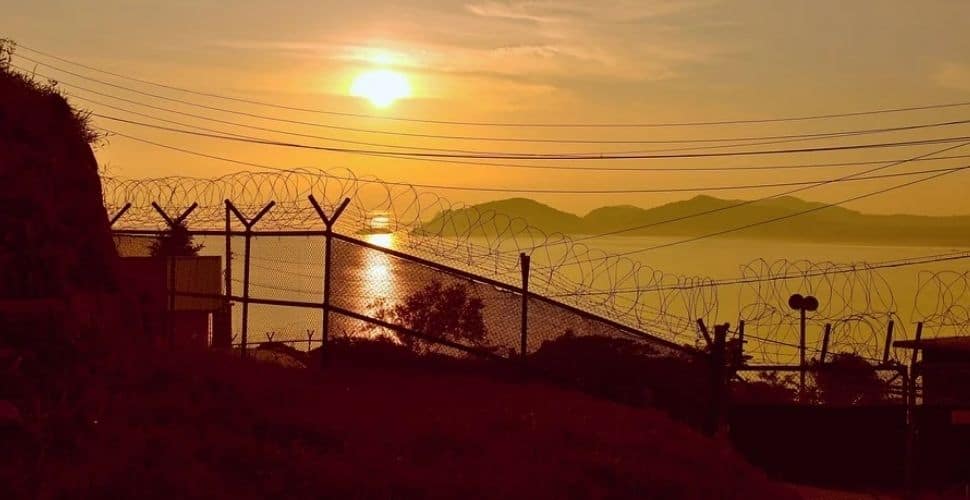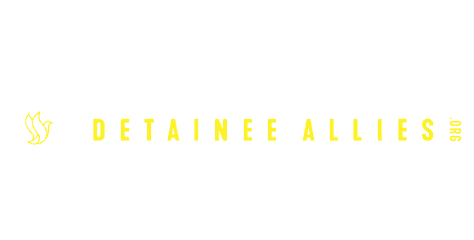Goal:
In 2018, we launched our campaign against CoreCivic — a for-profit detention facilities company that contracts with Immigration and Customs Enforcement (ICE) — in response to reports of immigrants being subjected to forced labor at CoreCivic’s Otay Mesa Immigration Detention Center in California. We called on CoreCivic to make three key changes:
- Address forced labor allegations at Otay Mesa and provide remediation where required;
- Add explicit language denouncing forced labor to the company’s Human Rights Policy Statement, with measures to verify that it is enforced and enacted across all company sites; and
- Raise the wages paid to detainees for voluntary work to a level that is comparable for free workers, as set out in International Labour Organization standards.
Summary:
Over the past few years, the United States has witnessed unprecedented public mobilization against for-profit detention companies, including CoreCivic, due to their growing record of human rights abuses of immigrants and asylum seekers, including reports of forced labor, threats of being put in solitary confinement, and denial of adequate food and basic hygienic necessities even during the Covid-19 pandemic.
Fundamentally, we believe that for-profit detention of immigrants and asylum seekers should not exist; it is an economic model that will always put profits first and incentivizes companies to lock up as many people as possible. Put simply, companies like CoreCivic should not exist.
The company continues to face multiple lawsuits from former detainees alleging forced labor and violations of the US Trafficking Victims Protection Act, or TVPA. In one federal lawsuit in Georgia, CoreCivic even asked the court for the cost of food and housing to be deducted from any damages awarded to detainees. This was despite CoreCivic being reimbursed by the US government for these costs and the company raking in tens of millions of dollars in profits. To this day CoreCivic has refused to take responsibility or acknowledge any wrongdoing.
At the end of May 2021, Freedom United decided to close our campaign with 54,754 petition signatures against CoreCivic into our larger efforts to spur divestment from private prisons and immigration detention companies. Both CoreCivic and GEO Group, another massive for-profit detention company, are set up as Real Estate Investment Trusts (REITs), a strategy that exempts them from corporate income taxes.
Timeline of events:
February 22, 2019: We joined our allies, Detainee Allies, handing in 43,106 signatures to California Attorney General Xavier Becerra.
February 25, 2019: California Attorney General Xavier Becerra released his report investigating conditions in immigration detention centers in California. Whilst we welcomed this report, we were disappointed that the issue of forced labor in detention is not addressed in detail.
May 15, 2019: We and concerned Nashville residents teamed up for an event to raise awareness of reports of forced labor in CoreCivic facilities. With support from the Red Sand Project, we poured red sand into cracks in the public sidewalk near CoreCivic’s headquarters to show the for-profit immigration detention company that we stand against their abuses.
May 17, 2019: CoreCivic has released its first-ever ESG (economic, social, and governance) report setting out a policy to prohibit “trafficking and unlawful forced labor.”
September 2019: California lawmakers passed AB32, a bill that would ban private prisons — including ICE-contracted detention centers — from operating in the state.
March 2020: the 11th Circuit of the US Court of Appeals found that CoreCivic’s Stewart Immigration Detention Center is liable under the Trafficking Victims Protection Act.
Outcome:
The movement against for-profit immigration detention continues as activists, the public and private sector, and the public recognizes the need to divest from companies like CoreCivic. As of May 2021, six major US banks — JPMorgan Chase, Wells Fargo, Bank of America, SunTrust, BNP Paribas, and Fifth Third Bancorp — have made public commitments to no longer provide new financing to the private prison industry after current financial agreements expire. This is a critical step as for-profit detention companies CoreCivic and GEO Group receive about US$1.9 billion in private financing.
We continue to see important state legislation to ban private immigration detention advances, and we support these efforts. Following California’s lead in passing legislation to phase out the use of U.S. Immigration and Customs Enforcement facilities run by private contractors, in 2021 Washington, New Jersey, Maryland, and New York introduced similar bills. Furthermore, Sen. Cory Booker, Rep. Pramila Jayapal, and Rep. Adam Smith introduced legislation in Congress to end the use of private jails as immigration detention centers, stating the need for “community-based alternatives to detention while also restoring due process for immigrants and increasing oversight, accountability, and transparency measures.”
Join our larger campaign to end slavery in the U.S. prison and detention industry as we push for all sectors to divest and cut contracts with for-profit immigration detention centers, as well as public action to advance state and federal bills to ban their operation.



Freedom United is interested in hearing from our community and welcomes relevant, informed comments, advice, and insights that advance the conversation around our campaigns and advocacy. We value inclusivity and respect within our community. To be approved, your comments should be civil.